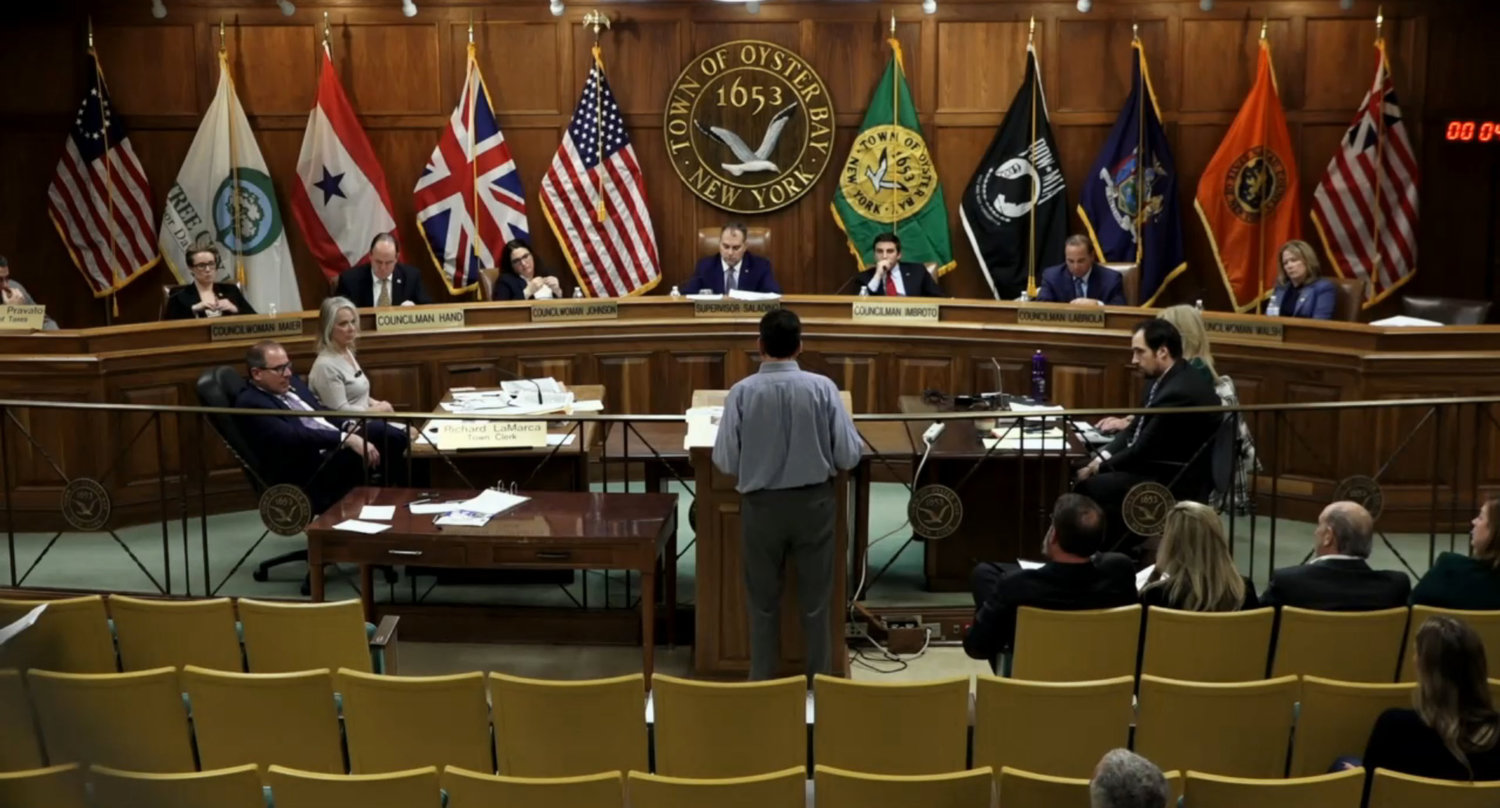Cracking down on fraudulent collection bins
Ralph Healey, special counsel to the Town of Oyster Bay, made a presentation before the Town Board during its meeting on Feb. 25 about cracking down on fraudulent collection bins throughout the town.
If the law is passed, those owning clothing collection bins in the town will need undergo a permitting process. Additionally, the owners must belong to a charitable organization and can only place the bins on properties zoned as light industrial, general business or on the property owned by the non-profit. This is to prevent commercial businesses or scammers from setting up fraudulent bins to sell clothing for a profit.
“In some instances,” Healey said, “commercial enterprises have been soliciting donations and other personal items under the guise that these are being solicited for charitable purposes.”
Healey said that other municipalities across the tri-state area have experienced this issue in recent years, many of which have passed laws to regulate collection bins.
Additionally, Healey said the new law would only allow a maximum of two collection bins on any one property. He said the bins must also show the name and contact information of the nonprofit organization to which they belong, as well as a sticker indicating that it has been approved by the town. The stickers, he said, will be free.
Healey said violators would be fined $250 per day per bin if the law is broken.
Councilman Lou Imbroto said this idea came out of the Quality of Life Task Force, when its members noticed that many collection bins in parking lots throughout the town were fraudulent.
“We’re just trying to address that issue,” he said, “to clean this up and make sure that only legitimate not-for-profit agencies have these bins in our town and that they’re located in a place that’s not going to interfere with our quality of life.”
Town Supervisor Joseph Saladino said there are scams going on involving collection bins, some of which are not properly constructed and all of which prevent people in need from getting clothing. He said the town has many of these bins in storage and they have false information on them such as non-existent addresses or phone numbers.
One of the more overlooked aspects of these fraudulent bins, Saladino said, is that they can affect the structure of a parking lot. Lots are designed to have just enough square footage to account for a specific amount of parking spots and these bins can make parking and maneuvering in these lots hard for drivers, he said.
Councilman Steve Labriola asked Saladino if the bins the town has in storage could be redistributed to appropriate non-profits. The supervisor said that many of the bins are not constructed properly and could be dangerous.
Labriola persisted, asking if the bins that are viable could be made available to non-profits prompting Saladino to say that the idea could be run through the town attorney’s office.
Marta Kane, the town’s spokeswoman, said the proposed law would be voted upon in future, although there is not a set date for the vote now.
St. Vincent de Paul of Long Island works with many non-profit organizations across Nassau and Suffolk to collect clothing for the needy. Executive Director Tom Abbate said he fully supports the plans being considered by the town. He’s seen many bins over the years representing organizations that were questionable, he said. He added that he doesn’t know where the collected clothing from these bins went .
Abbate said that St. Vincent de Paul has been collecting clothing from bins since the 1980s. Most items go to one of the organization’s thrift stores in Garden City or Huntington, where they can be bought for low prices. People in need can also be given vouchers for free clothing from the thrift stores.
With increased attention being paid to collection bins, Abbate said he’s hopeful that more clothing would go to those who need them.
“I think it’s great that the town is monitoring the activities of the bins,” he said. “There are a lot of good organizations out there doing a lot of great works and most of them are great non-profits.”






